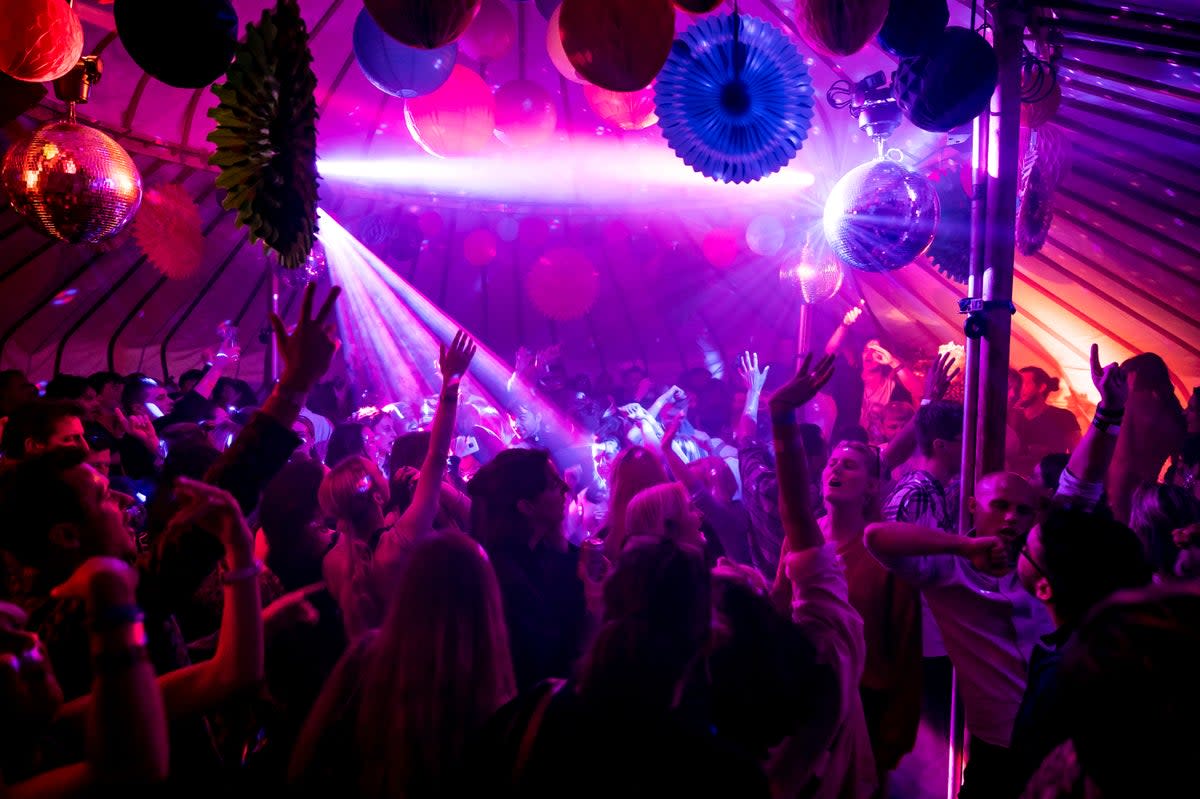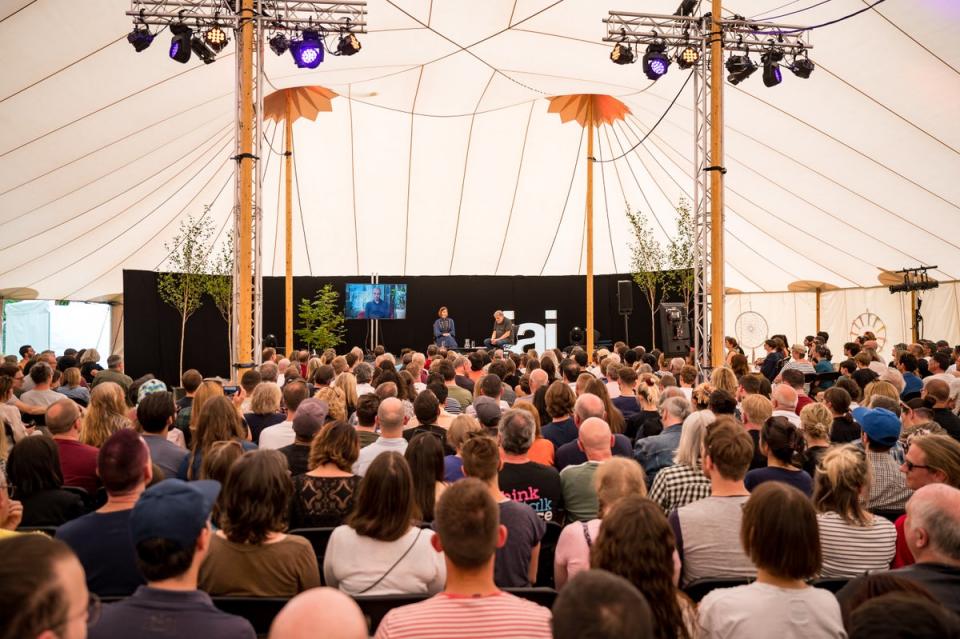HowTheLightGetsIn: The festival striving to unravel life’s unexplained mysteries

- Oops!Something went wrong.Please try again later.
- Oops!Something went wrong.Please try again later.
There are not many festivals where you could easily cross paths with a Nobel Laureate or a Pulitzer Prize winner while queuing for some food - unless you are sauntering around HowTheLightGetsIn festival that is.
Something of an ideological lucky dip, HowTheLightGetsIn, the biggest philosophy and music festival in the world, is known for its eclectic line-ups. Previous speakers at the event span from Noam Chomsky, renowned academic, to Brian Eno, the English musician, Ed Milliband, former Labour Party leader, Philip Pullman, best-selling author, to two authors both famed for whipping up controversy, Richard Dawkins and Slavoj Zizek.
At its core, HowTheLightGetsIn is about trying to liberate philosophy from the far-flung elitist ivory tower of academia and make it more digestible and rousing for wider audiences. And it is Hilary Lawson, the festival’s founder, who is at the helm of this noble pursuit.
“In Britain and the US, philosophy is often seen as something of a joke and more associated with Monty Python’s Philosopher’s Football match,” Lawson previously told The Independent.
“We would rather associate philosophy with Parisian taxi drivers than engaging ourselves. We are all philosophers. We have all got to come to terms with the strangeness of life. The idea of discussing these things openly and directly was thought to be unnecessary. This strikes me as being ridiculous.”

Lawson, a philosopher himself, is intent on overhauling the idea that philosophy is “beyond the realms of the normal person” and ensnared in petty debates about semantics.
“In some sense, everyone is a philosopher. We are all in this strange situation of being alive - there are lots of puzzles and things we need to make sense of,” he noted.
However, it is not just the all-star lineups of speakers which make HowTheLightGetsIn so different from other festivals, it is also the fact there is being music and comedy performed alongside the talks. Musicians, Clean Bandit, and Hot Chip, and comedians such as Sarah Pascoe have also performed.
Discussing this year’s event, Lawson, who is famed for his theory of closure, said: “If you are listening to a debate in a festival tent, there is something about occasional background sounds of music and entertainment drifting in from other venues that helps to level the conversation.
“Music is also about being fully present and experiencing being alive. Thinking is only one part of the philosophical story. Being is the other. And we are frequently closer to that on the dance floor than in the lecture hall.”

The festival is hosted twice a year. In May, the event is held in Hay-on-Wye in Wales, while in September, the festival is at Kenwood House in north London. The forthcoming festival being held later this month, from 17 - 18 September, will be headlined by novelist, Esther Freud, Peter Singer, the “godfather of altruism”, as well as reality theorist Donald Hoffman, among others.
With over 200 speakers and performers spanning across 130 events and 10 stages, as well as music from 2022 Mercury nominee Gwenno, and Django Django, the 2012 Mercury Nominee, there is a lot to soak up this year.
“We look not only to philosophers, but to scientists, novelists, artists and politicians,” Lawson, who is the director of the Institute of Art and Ideas, said. “The big questions are present in every field, and new philosophical ideas are at least as likely to appear in literature, history or science as they are in philosophy.”
More details on HowTheLightGetsIn can be found here. As a festival partner, The Independent is offering a 20 per cent discount on tickets with the code INDY22. Don’t miss out on tickets here.
But for those of you who are unable to make it to the festival, fortunately, all the debates and talks will bit by bit be released online in the coming months via the Institute of Art and Ideas online platform, IAI.TV.

